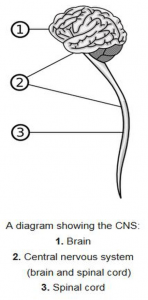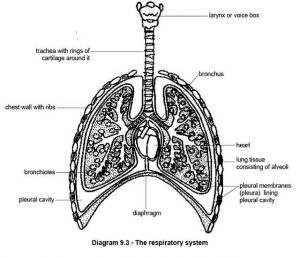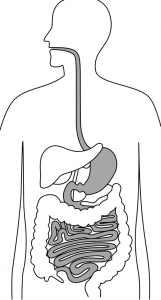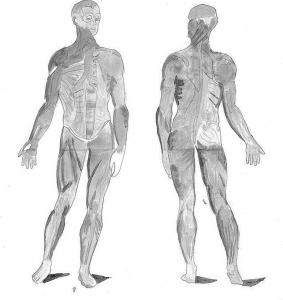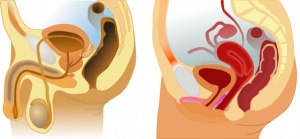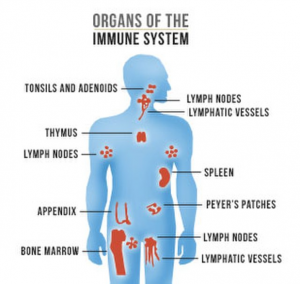Nancy’s Health: Stress
Nancy’s Story Continues…
- IVF was unsuccessful
- Nancy’s stress levels were rising
- After extensive discussions with Paul, they decided to adopt
- They did not have to wait long
- The adoption agency had a 2 year old boy – Sam
- At about the same time Nancy’s mother fell and fractured her hip
- She traveled north to assist her parents
- She was shocked at the physical disarray her father was in
- Her stress levels continued increasing with everything “on her plate”
- She fell back into old eating habits
- Eating was the one thing she felt she had control over
Overview
- Stress is a natural physical & mental reaction to life experiences.
- The body responds to stress by releasing hormones that increase your heart & breathing rates & ready your muscles to respond.
- If your stress response doesn’t stop firing, it can take a toll on your health & overall well-being.
- Irritability
- Anxiety
- Depression
- Headaches
- Insomnia
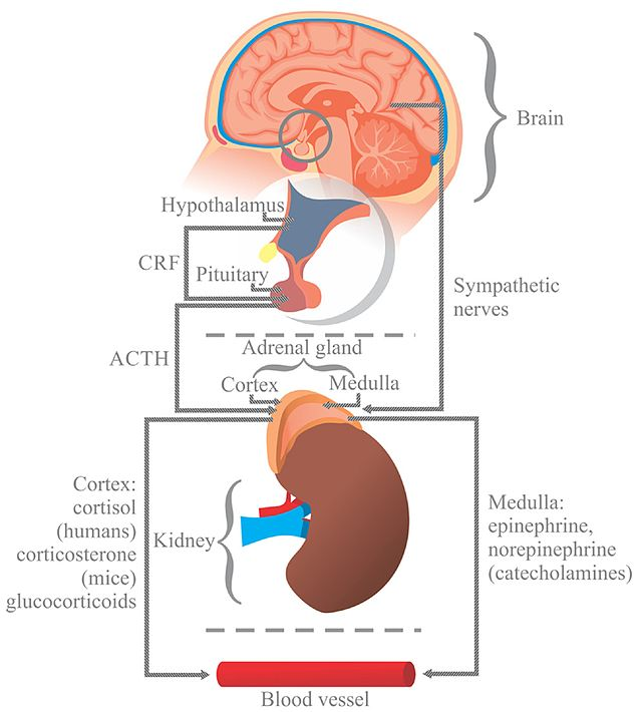
Effects of Stress on the Body
Central Nervous and Endocrine Systems
- CNS is in charge of the “fight or flight” response
- The hypothalamus triggers the adrenal glands to release the stress hormones adrenaline & cortisol
- Increasing heart rate & sending blood to the areas that need it the most (muscles, heart, other important organs)
- When the perceived fear is gone, the hypothalamus tells all systems to go back to normal
- If the stressor does not go away, the response will continue
- Chronic stress is also a factor in behaviours such as overeating, not eating enough, alcohol, drug abuse, and social withdrawal
Respiratory and Cardiovascular Systems
- Stress hormones affect the respiratory & cardiovascular systems
- Breathing increases in an effort to quickly distribute oxygen-rich blood to the body
- The heart pumps faster
- Stress hormones cause the blood vessels to constrict & divert more oxygen to muscles
- May also increase blood pressure
- Frequent & chronic stress will make the heart work too hard for too long
- Increase risk of stroke or heart attack
Digestive System
- The liver produces extra blood sugar (glucose) to give a boost of energy
- Under chronic stress, the body may not be able to keep up with the extra glucose surge
- Chronic stress may increase the risk of developing type II diabetes
- Rush of hormones, rapid breathing, increased heart rate may upset your digestive system
- Can increase the risk for ulcers or cause existing ones to act up (ulcers are caused by a bacterium called H. pylori)
- Stress may also affect the way food moves through the body, leading to diarrhea or constipation
- May experience nausea, vomiting, stomachache
Muscular System
- Muscles tense up to protect themselves from injury during stress
- Once you relax they tend to release
- Chronic stress may not give your muscles the chance to relax
- Tight muscles cause headaches, back & shoulder pain, body aches
- Over time this unhealthy cycle may affect your ability to exercise, & pain medication for relief may be used
Sexuality & Reproductive System
- Not unusual to lose desire when under constant stress
- Short-term stress may cause men to produce more testosterone, the effect doesn’t last long
- Chronic stress will cause a man’s testosterone levels to drop
- This can interfere with sperm production & cause erectile dysfunction or impotence
- Chronic stress may increase risk of infection of male reproductive organs
- For women, stress can affect the menstrual cycle
- Irregular, heavier, or more painful menstrual periods
- Chronic stress can also magnify the physical symptoms of menopause
Immune System
- Stimulates the immune system, which is good for immediate situations
- Over time, stress hormones weaken the immune system & reduce the body’s response to foreign invaders
- Chronic stress causes more susceptibility to viral illnesses & other infections
- Can increase the time it takes to recover from an illness or injury
Sandwich Generation
- Nancy is now looking after a toddler & her parents
- She is still working & going to school
- Women often feel overextended
Strategies to help manage stress:
- Identify stressors
- Recognize how you deal with stress
- Find healthy ways to manage stress
- Take care of yourself
- Ask for professional support

